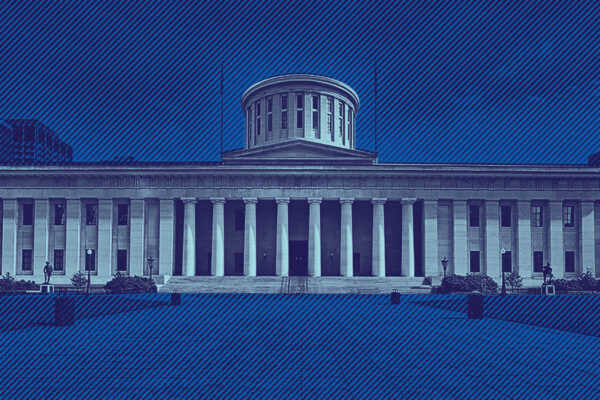Thank you Chairman Rulli, Vice Chair Schuring, Ranking Member DeMora, and members of the Senate General Government Committee for the opportunity to provide opponent testimony against Senate Joint Resolution 2 (SJR 2). My name is Collin Marozzi, and I serve as the Deputy Policy Director for the American Civil Liberties Union of Ohio.
Should SJR 2 become law in Ohio, it will not only fail at the supposed purpose of “protecting Ohio’s Constitution,” but it will shred our democratic principle of one person one vote. Nothing in this proposed amendment will stop big money, out of state special interests from bankrolling multi-million dollar campaigns. Instead, SJR 2 will further consolidate the power of government to the whims and wishes of the few, at the expense of the many. SJR 2 is a wolf in sheep’s clothing.
By asking Ohio voters to support SJR 2, Ohioans are being asked to undercut their own ability to govern themselves. Former President Teddy Roosevelt, speaking in favor of the citizen-initiated amendment process to the 1912 Ohio Constitutional Convention, said “it is a false constitutionalism, a false statesmanship, to endeavor by the exercise of a perverted ingenuity to seem to give the people full power and at the same time to trick them out of it.”1 SJR 2 seeks to give 41% of voters the power to squash the will of the majority. This is the antithesis of democracy.
Now the Ohio General Assembly wishes to place this question before Ohio voters at an August special election – mere months after telling the people of Ohio how wasteful, manipulative, and undemocratic these types of elections are. The hypocrisy is rampant. How does this short-sighted, impulsive legislating translate to good, deliberative policy? It doesn’t.
It is also a false equivalency to think that the Ohio constitution should be equally as difficult to amend as the US constitution. To think they should be is a misunderstanding and misapplication of democratic systems of government. High school civics taught us that, in democracies, the smaller the population, the more responsive their governing documents are. This is why township ordinances are easier to change than the Ohio Revised Code, and the Ohio Revised Code is easier to change than federal law. So why should the Ohio Constitution, which governs 11 million people, be as difficult to amend as the US constitution, a document that governs 330 million people?2 Ohio constitutes only 3% of the US population. That’s like arguing the Cleveland City Charter, governing a population of 330,000, should be as difficult to amend as the Ohio Constitution – the population ratios are identical. That scenario would be unnecessary, unpopular, and undemocratic.
President Teddy Roosevelt said, “I am emphatically a believer in constitutionalism, and because of this fact I no less emphatically protest against any theory that would make the constitution a means of thwarting instead of securing the absolute right of the people to rule themselves and provide for their social an industrial well-being.”3 Those words should resonate with us all. No believer in democracy, and self-determination can look at SJR 2 and be in favor of it. Our current system for citizen-initiated constitutional amendments works. It does not get abused. We do not take amending our constitution lightly. It seems supporters of SJR 2 believe Ohioans are incapable of sniffing out sham constitutional amendment campaigns – or that a majority of Ohioans should not be sufficient to exercise our inherent right to self-government. The ACLU of Ohio, along with the more than 200 other Ohio based organizations opposed to this bill, do not think Ohioans are so easily duped or powerless. Again, Teddy Roosevelt said it best when he said, “those who take [the former] position hold that the people are competent to choose officials to whom they delegate certain powers, but not competent to hold these officials responsible for the way they exercise these powers.”4
Thank you, and I’m happy to answer any questions.
1Roosevelt, Theodore. A Charter of Democracy: Address by Hon. Theodore Roosevelt, Ex-president of the United States, before the Ohio Constitutional Convention on February 21, 1912. Washington: G.P.O., 1912. Retrieved from: https://teachingamericanhistory.org/document/a-charter-for-democracy/
2https://www.cbo.gov/system/files/2023-01/58612-Demographic-Outlook.pdf
3Roosevelt, Theodore. A Charter of Democracy: Address by Hon. Theodore Roosevelt, Ex-president of the United States, before the Ohio Constitutional Convention on February 21, 1912. Washington: G.P.O., 1912. Retrieved from: https://www.cbo.gov/system/files/2023-01/58612-Demographic-Outlook.pdf
4Ibid.


